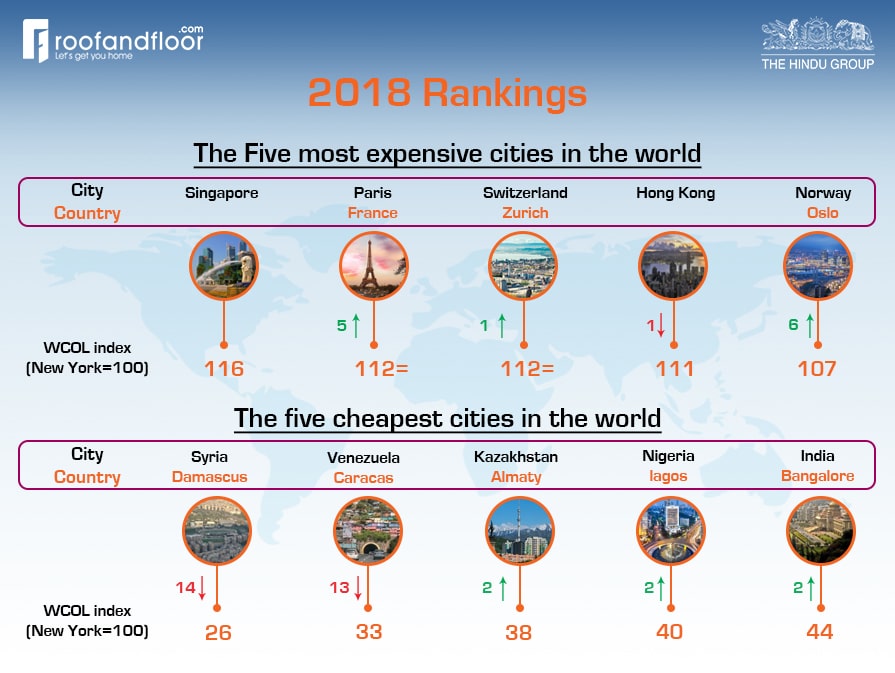While browsing through my newsfeed last week, I came across an interesting report that stated that Bangalore recorded the lowest dip in housing sales in 2017 while Chennai recorded the highest dip.
What particularly caught my attention was that while the National Capital Region (NCR) and Mumbai Metropolitan Region (MMR) had an inventory overhang of about 75 and 61 months respectively, Bangalore was at about 30 months.
Now, consider another report by The Economist.
Its Worldwide Cost of Living Survey found that Bangalore is the cheapest city in Asia and among the five cheapest cities in the world!
The report says that it arrives at this cost of living to rank after comparing more than 400 prices across over 150 products and services.

From real estate to cost of living – what has Bangalore done right?
Realistic prices that haven’t been driven by speculation
I believe that, despite the growth, property values in the city remain realistic. Bangalore has essentially been an end-user driven market that has always motivated or forced real estate developers to keep property prices under-check.
When compared to other metropolitan cities like NCR or MMR, the Silicon Valley of India has never been impacted by speculative pricing. Remember the inception of the Metro rail in Gurgaon? Some localities even recorded a whopping (read unrealistic) rise of 30-40% within a year. And the property prices in Gurgaon have never been the same since then!
Bangalore, fortunately, has not seen such violent fluctuations. The city’s economic graph has been rising despite its reliance on the IT sector, and despite recent climate changes, its famed weather is still a key factor for those choosing to settle down here.
Majority of buyers belong to the services industry
Being the prominent IT hub of the country, Bangalore’s real estate market has been primarily dominated by the services industry with white-collar professionals. With fairly stable incomes, many buyers are comfortable paying EMIs on their home loans.
Remember how Bangalore’s market was least impacted during demonetisation? This was largely because the cash-component involved in property transactions has been low since real estate in the city took off.
Continuous growth of commercial sector
Bangalore has grown from a pensioner’s paradise to a bustling IT hub over the last decade. Realising the immense potential that the city holds, several leading multinationals are either establishing their base or are in an expansion mode. In just March alone, we saw some heavy-duty investment.
The Embassy Group announced an investment of Rs 1,350 Crore in four new hotels in Bangalore. The real estate behemoth, the Prestige Group, bought 59 acres of land at a cost of Rs 330 Crore for developing a “state-of-the-art commercial space.” And, we all know that Bangalore has been the pioneer in the rise of the start-up culture.
Bumpy ride ahead?
But is it all rosy for Bangalore? Cheaper cities may not necessarily be the most liveable and Bangalore has a lot to do on that front!
The city has often been in the news for its crumbling infrastructure. Be it the infamous traffic snarls or burning lakes, Bangalore is struggling to fix several problems. Elections are just around the corner in May.
Will Bangalore shake off its perceived infrastructure lethargy and lead the way for the real estate sector in India? Time will tell, but the city continues to offer great investment opportunities for those eyeing a less-volatile market.





